Let's say I have following data:
Create Table Pm_Test (
Ticket_id Number,
Department_From varchar2(100),
Department_To varchar2(100),
Routing_Date Date
);
Insert Into Pm_Test Values (1,'A','B',To_Date('20140101120005','yyyymmddhh24miss'));
Insert Into Pm_Test Values (1,'B','C',To_Date('20140101130004','yyyymmddhh24miss'));
Insert Into Pm_Test Values (1,'C','D',To_Date('20140101130004','yyyymmddhh24miss'));
Insert Into Pm_Test Values (1,'D','E',To_Date('20140201150004','yyyymmddhh24miss'));
Insert Into Pm_Test Values (2,'A','B',To_Date('20140102120005','yyyymmddhh24miss'));
Insert Into Pm_Test Values (3,'D','B',To_Date('20140102120005','yyyymmddhh24miss'));
Insert Into Pm_Test Values (3,'B','A',To_Date('20140102170005','yyyymmddhh24miss'));
For the following requirements I already added two virtual columns, I think they might be necessary:
Select t.*,
Count(Ticket_id) Over (Partition By Ticket_id Order By Ticket_id) Cnt_Id,
Row_Number() Over (Partition By Ticket_id Order By Ticket_id ) row_number
From Pm_Test t;
1) I want to measure how long each ticket stayed in a department (routing_date of successor_department - routing_date of predecessor department) by adding the column PROCESSING_TIME:

2) I want to measure the total processing time by adding the column TOTAL_PROCESSING_TIME:

What SQL statements would be necessary to do so?
Thank you very much in advance!